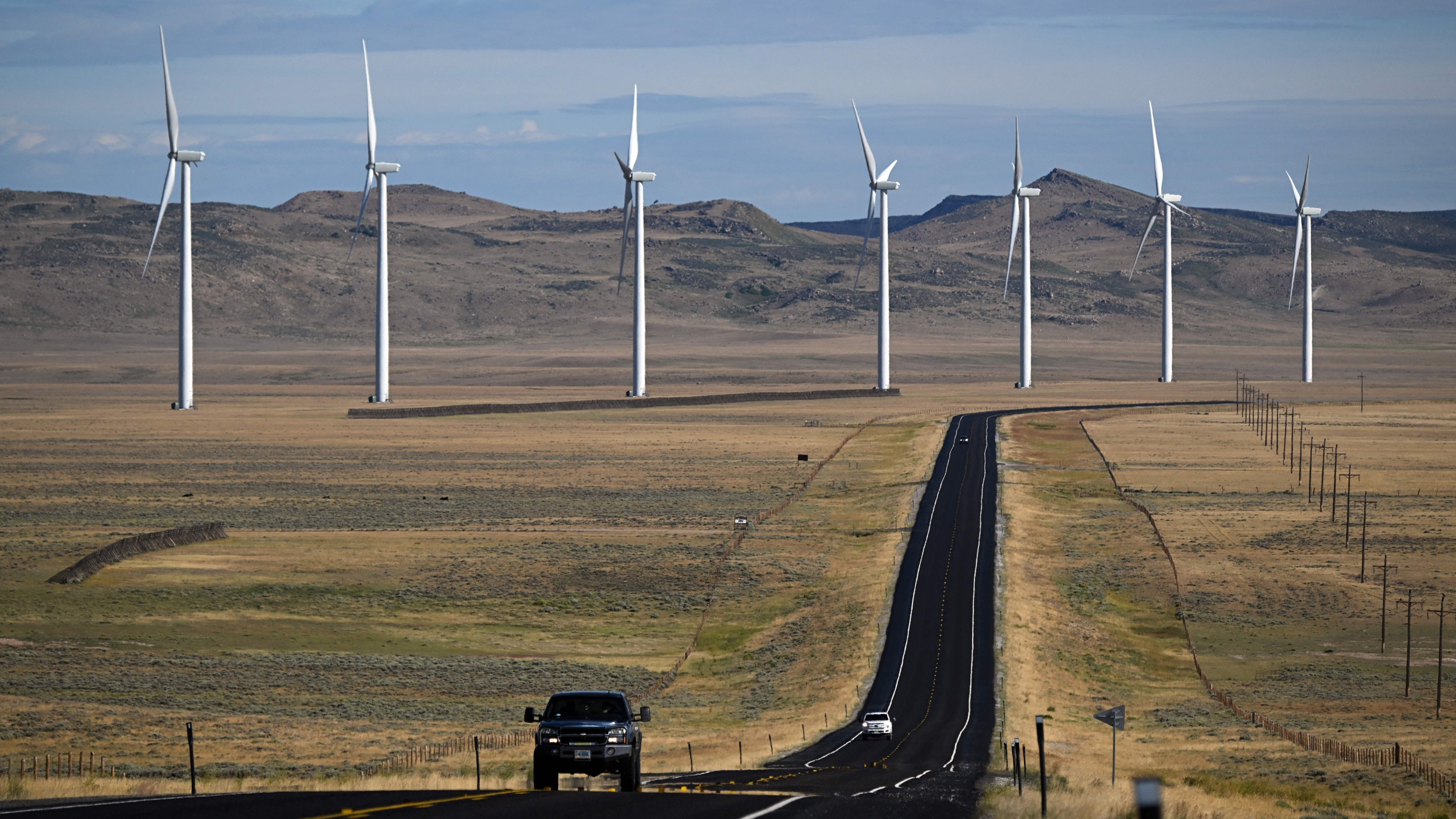Kara Choquette’s journey from Kearney, Nebraska, to Carbon County, Wyoming, reflects a big shift in focus toward renewable energy. In 2009, she joined the Power Company of Wyoming, which aimed to establish a large wind farm in Carbon County. Wyoming, known for its windswept landscapes, was seen as a prime location for wind energy development.
However, Wyoming’s legislative landscape underwent changes that impacted the wind industry’s operations. The state legislature reintroduced sales and use taxes on renewable energy equipment, previously exempted, and implemented a unique generation tax for wind companies. This tax, initiated after three years of operation, required wind energy producers to pay one dollar per megawatt hour of electricity generated.

Wyoming’s Wind Industry Dodged New Taxes (Credits: Inside Climate News)
The rationale behind these measures was to generate revenue for localities and maintain Wyoming’s competitiveness in the clean energy sector. While the sales and use taxes were standard practice, the generation tax became a contentious issue for the wind industry. Wyoming stood out as the only western state imposing such a tax on wind energy.
During the recent legislative session, proposals to alter the generation tax faced scrutiny and did not progress. Bills aiming to repeal the tax exemption or introduce additional taxes on wind companies failed to gain traction. The debate centered on whether increasing taxes deter new developments or benefit the state’s economy.

Plans to hike Wyoming’s wind tax fail annually (Credits: Casper Star-Tribune)
Kara Choquette argued against tax increases, highlighting the potential negative impact on the industry’s economic viability in Wyoming. Despite its nascent stage, she emphasized the wind industry’s contribution to state revenues.
On the other side, Sen. Cale Case advocated for higher taxes, citing concerns about the industry’s environmental impact and limited direct benefits to Wyoming.
The debate encapsulates broader discussions about Wyoming’s energy landscape, balancing traditional fossil fuel industries with renewable energy initiatives. It reflects the state’s ongoing efforts to change economic diversification, environmental considerations, and taxation policies.
The uncertainty surrounding tax arrangements adds complexity to the wind industry’s future in Wyoming, with stakeholders divided on the best approach for sustainable energy development.























